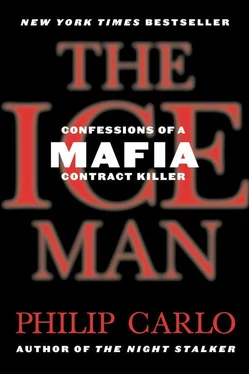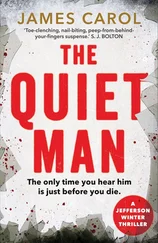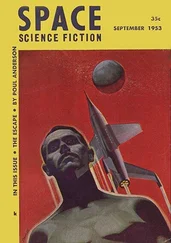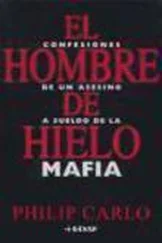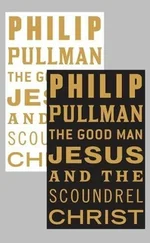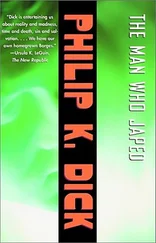Richard liked Zurich. It was clean and orderly, and the people were pleasant and accommodating. He checked into a hotel in the middle of town, the Hotel Zurich, met the man who had access to all this Nigerian currency, a Belgian named Remi, a short, heavyset individual with thick eyebrows. Richard was wary, but Remi took him to an office just outside of town, and there was the Nigerian currency, packed in thick plastic squares—150 pounds of it. Richard would have to take the currency to Nigeria. He was not too excited about going to Africa, but he’d go anywhere to make money. It was now arranged for the money to be transported back to Nigeria. Richard would fly on the same plane, which left the following day. Richard had always had a kind of wanderlust and he was curious to see Nigeria, one of the poorest, most violent countries in the world, where people were still bought and sold, where human sacrifice is still practiced. As planned, Richard met the official—a dark-skinned, tall cadaver of a man—and the money was quickly approved for import back into the country. Richard had to stay overnight to catch a return flight to Zurich. He didn’t like anything about Nigeria, its disorder, its overwhelming poverty, its dusty roads, withered palm trees, harried street dogs that seemed concerned that they could become someone’s dinner at any moment. To say that Richard Kuklinski, with his fair Polish-Irish complexion, stood out, was an understatement. He was glad to leave the next day and hoped he wouldn’t have to come back.
Zurich was just the opposite, neat and tidy and prosperous. Richard, as was his way, took long walks, curiously watching the fastidious Swiss go about their fastidious, ordered lives. The one thing that struck Richard the most, still sticks in his mind these many years later, was how clean the place was—not even a piece of paper on the floor. Richard found a park that was open all night and people strolling about without a care, no fear of muggers or being robbed. While waiting for the check from Nigeria, Richard had glorious meals, mostly by himself, but a few with his new friend Remi.
Remi told Richard about a second scheme he’d been working on: a man who worked in a Swiss bank would provide him with the numbers of Swiss bank accounts, even bank checks drawn on these accounts. “I am talking here about huge accounts of giant corporations and people who have much money to hide, people who could never go to the police—understand?” Remi said, his lips barely moving as he talked, like a ventriloquist.
“I understand.”
“We need an account in the States where we can clear the checks. Would you be interested in such an enterprise?”
“What’s our end?”
“Half must go directly to the banker; we will split the other half.”
“And all I have to do is open an account and deposit these checks, you say?”
“Exactly.”
“How much are we talking about here?”
“No more than seven hundred fifty thousand dollars. Once the amount goes above that, the transaction will automatically be looked at more closely.”
“You’re kidding.”
“I don’t kid about money.”
“Sure, I’m in,” Richard said, and agreed to open still another corporate account back in the States to facilitate this scam. This all seemed too good to be true, but Richard had heard of far more bizarre things and he knew well the black-hearted larceny that lived in men’s hearts and readily accepted the deal Remi had laid out.
The check soon arrived from Nigeria. It was for $455,000. Richard’s end would be 25 percent. Richard took it and went back to the States in the first-class section of a Pan Am flight, with plans of soon returning to Zurich.
Pat Kane walked into Lieutenant Leck’s office and said, “The only way we are ever going to get Kuklinski is if we get someone close to him. We are going to need a really good undercover guy. Someone who could fool him. Draw him out into the open.”
“You have anyone in mind?” Leck asked.
“I was talking to the chief of homicide in Bergen County, Ed Denning. He says he knows a top-notch undercover guy—he’s with ATF. What do you think?”
“Sure, give it a try. Why not?” he said, knowing Kane was right—that he’d been right all along.
In early April Pat Kane drove to Trenton, New Jersey, to meet this super undercover guy.
45. How the Fuck You Doin’?
Dominick Polifrone was thirty-nine years old, had hardened dark street-eyes, full cheeks, a Fu Manchu mustache, wore an ill-fitting black wig. He was nearly six feet tall, a strapping, powerful man with broad shoulders, a second generation Italian American with dark olive skin. Polifrone was happily married with three young children. He had successfully infiltrated mob circles numerous times, had gathered credible evidence that was used in federal courts to get convictions, and no one he helped put away knew he was responsible. Polifrone knew the walk and the talk, how to dress, what to say and how to say it. He had taken on the persona, the rough exterior, swagger, speech, and mannerisms of mob guys. Often, every other word out of his mouth was “fuck.” Pat Kane was immediately impressed by Polifrone. When they first met he not only thought he could do the job, but do it very well; he was, Pat would later say, perfect, “right out of a Mafia movie.” He was, indeed, “almost too good to be true,” Kane said.
The two men, as different as night and day, one brash and bold, the other polite and introspective, sat down, and Pat Kane slowly ran down everything he had. As he talked, Polifrone’s high, wide brow creased with curiosity, the furrows deepening as Kane spoke. Curiosity soon turned to dismay, then outright anger. After Kane had laid out what he had, Polifrone said, “You mean to tell me this fuckin’ guy killed all these people and is still out there fuckin’ walking around?”
“That’s exactly what I’m saying,” Kane said, his boyish face rock hard, his gaze sure and steady, filled with resolute, steely resolve.
“That’s fuckin’ unbelievable!” he said.
“Tell me about it. Will you help?”
“The question isn’t will I help, of course I will. It’s how do I get my bosses to okay it?”
Polifrone worked for the federal Bureau of Alcohol, Tobacco, and Firearms, and they did not investigate murders; homicides were not their jurisdiction, which of course Pat Kane already well knew, and he had a ready answer:
“I’ll tell you how,” he said. “Firearms—he deals in firearms,” Kane said.
“Straight up?”
“Yes.”
“That’ll fuckin’ do it.” Polifrone went and made a few phone calls, ran down for his superiors what Kane had told him, and within an hour he was given the green light. He and Kane shook hands.
“Let’s get this fuckin’ guy!” Dominick said, and thus a rare coupling between the New Jersey State Police and the federal government was done. This pairing would grow to be one of the largest state-federal law enforcement efforts ever, a task force unequaled in New Jersey’s history.
But “Let’s get this fuckin’ guy” was a lot easier said than done.
Richard Kuklinski was a very untrusting, dangerous man. He could smell a cop a mile away. It was a talent he had developed, indeed honed, from a lifetime of crime, stalking and killing at will, a lifetime of being an alpha predator in a very dangerous jungle, as he perceived his world. How, they wondered, could they get Dominick Polifrone near Kuklinski, let alone get his faith and confidence? This was the million-dollar question, a giant mountain to climb.
All excited, very pleased, Pat Kane arrived home that evening, a man reborn. For one of the first times in far too long he was smiling, not quiet and morose. For the first time since this ever expanding case fell into his lap, Kane could see light at the end of a dark, treacherous tunnel strewn with the many rotting corpses of Richard Leonard Kuklinski’s victims.
Читать дальше
